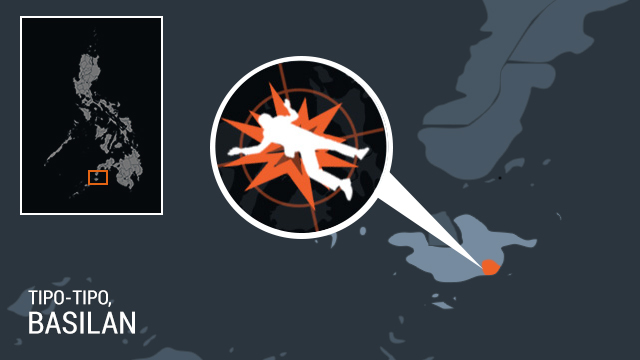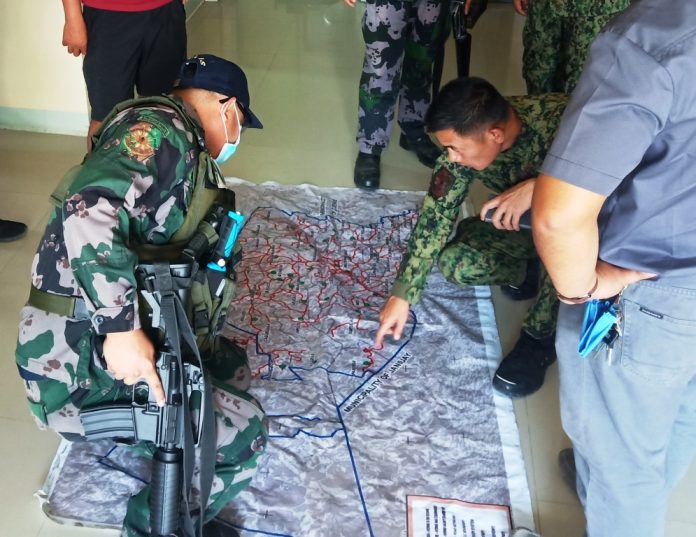President Rodrigo Duterte has signed an executive order (EO) institutionalizing a comprehensive social benefits program (CSBP) that grants a “speedy, sustainable and rationalized” social benefits and assistance to the police and the military.
Under EO 110 signed by Duterte on April 7, the CSBP provides for different types of benefits and assistance, such as “special financial assistance, scholarship, special welfare assistance, health and medical care assistance, shelter assistance, and employment assistance”.
Those who are eligible to avail of the assistance are wounded military and police personnel, as well as the qualified beneficiaries of killed soldiers and policemen.
Uniformed personnel of the Bureau of Jail Management and Penology (BJMP), Bureau of Fire Protection (BFP), and the Philippine Coast Guard (PCG), as well as members of the Citizen Armed Force Geographical Unit (CAFGU) or CAFGU Active Auxiliary Units (CAA) will also benefit from CSBP.
EO 110 highlights the need to give “rightful and reasonable” benefits to the police and the military, as well as their support units, and they continue to defend and secure the country.
“There is a need to enhance and rationalize existing assistance and benefits given to police, military and their support units through a comprehensive social benefits program in recognition of their invaluable contribution to the pursuit of just and lasting peace,” the order read.
According to the EO, the special financial assistance will be given to slain police and military personnel, and wounded military and personnel with either total permanent physical disability or major and minor injuries.
Qualified beneficiaries can also avail of the Department of Social Welfare and Development’s (DSWD) modified cash transfer or a monthly rice subsidy of 20 kilos under the Pantawid Pamilyang Pilipino Program.
They can also ask for a housing unit in existing AFP or PNP housing sites, or for the construction of a housing unit in the land they own.
Under CSBP, beneficiaries can also seek the payment of Philippine Health Insurance Corporation (PhilHealth) premiums and medical assistance for hospitalization and provision of maintenance medicines from the Department of Health (DOH).
Educational assistance will also be granted to a maximum of two children or other qualified beneficiaries of slain government troops or those wounded with total permanent physical disability, as long as they are not covered by existing scholarship programs.
The EO also allows the employment of the beneficiaries of the dead or permanently disabled police and military personnel.
“The above benefits and assistance provided through the CSBP may be adjusted, modified or removed, based on the availability of funds, or upon the instruction of the President, as may be recommended by government agencies implementing the CSBP,” EO 110 stressed.
Other forms of assistance that will be provided by other government agencies include welfare subsidy, skills training on financial literacy and entrepreneurship, and livelihood and employment programs, “subject to compliance with existing laws, rules and regulations.”
“The grant of the component benefits and assistance under the CSBP shall be uniform and equal in each type and application and shall ensure the most reasonable and rightful amount each type of assistance,” the order said.
EO 110 tasks the Department of Interior and Local Government (DILG) and the Department of National Defense (DND) to jointly lead in the implementation of CSBP.
The DILG and DND are directed to ensure that prompt action is taken to efficiently and expeditiously deliver the package of assistance to covered personnel and their qualified beneficiaries.
The EO also creates regional working groups in each administrative region to assist the national government agencies in implementing the CSBP through the “effective and efficient” delivery of the benefits to the beneficiaries at the local level.
The regional working group in each region should be composed of the regional directors of the DILG, DSWD, DOH, PhilHealth, Philippine National Police, National Police Commission, Bangko Sentral ng Pilipinas, National Housing Authority, Department of Education, Department of Labor and Employment, Department of Trade and Industry, Department of Public Works and Highways, and the Technical Education and Skills Development Authority.
The personnel officers of the Armed Forces of the Philippines and commanders of the military’s major services, unified commands, and other major ground units are also part of the regional working group.
The funding for the implementation of EO 110 would be sourced from existing appropriations of the implementing agencies of the component benefits under the CSBP and other sources that may be identified by the Department of Budget and Management (DBM).
Funding requirements for the succeeding years would be included in the respective budgets of government agencies implementing the CSBP.
All concerned agencies are required to submit biannual implementation and budget utilization reports on the status of the CSBP to the DILG and DND, with a copy to be furnished the Presidential Management Staff and the DBM.
“The DILG and the DND shall ensure that the benefits and assistance under the CSBP reach the intended beneficiaries, monitor and evaluate the effectiveness of program implementation, and submit to the Office of the President, through the Office of the Executive Secretary, an annual report on the implementation of this Order,” the order said.
EO 110, a copy of which was released by Palace on Wednesday, takes effect immediately.
https://www.pna.gov.ph/articles/1099306













